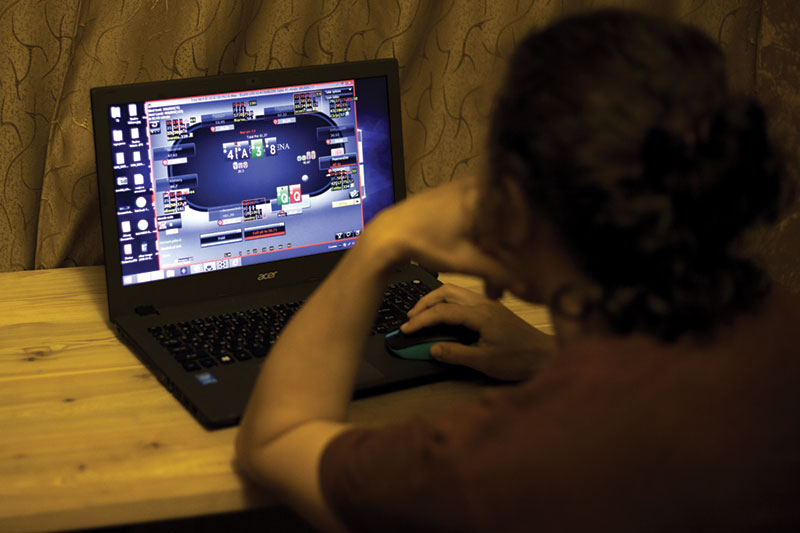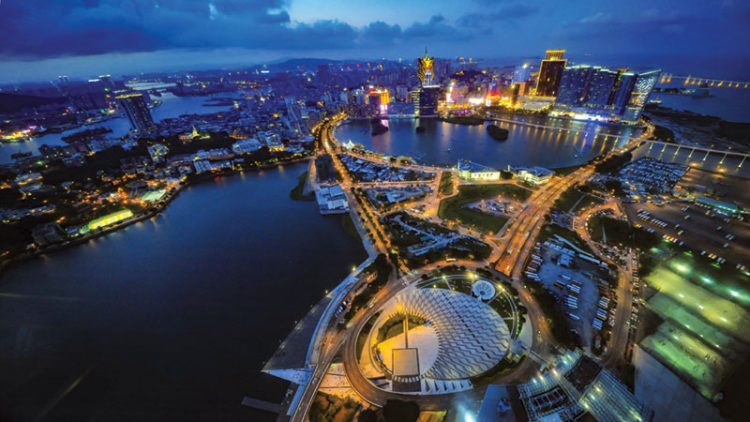Carlos Coelho of MdME Lawyers says the COVID-19 pandemic has accelerated the need for Macau to take a serious look at online gaming.
In the March 2020 edition of Inside Asian Gaming I presented my case for authorities to consider allowing online gaming in Macau. Since then, numerous voices have been advocating the same. The reasons are obvious: Macau’s GGR fell 79.3% year-on-year in 2020; the overall number of tourists fell by 33 million people to 5.9 million; and the unemployment rate stood at an all time high of 2.9% (and amongst first-time job seekers around 6.27%). As an economy that is over-reliant on brick-and-mortar gaming, what other result could we expect?
There are two other “obvious” reasons leading this urge to push online gaming forward. One is the upcoming expiry of Macau’s gaming concessions and the expected overall revision of the Macau gaming framework. The other is that online gaming has been provided for under Macau Gaming Law since 2001!
In my view it makes total sense to foster discussion of the possibility of implementing online gaming – and now is the time to do it! Almost 20 years have gone by since the brick-and-mortar gaming market opened to new players. For more than 15 years the incumbent sports betting concessionaire has been able to accept players placing their bets online. And for the last 10 years we have had the opportunity to watch the growth of online gaming operations worldwide; our neighbors in Asia are seriously looking at it as well.
 The government has announced its intention to put revision of the legal framework on gaming up for public consultation. Scholars, legislators and industry stakeholders are currently diverting their focus to the re-thinking of Macau’s economy engine. It is therefore up to them to bring this matter to life. Interestingly enough, neither the Chief Executive nor the DICJ have closed doors to this possibility. As per a Macau Business report in June 2020, “When Ho Iat Seng was asked about the possibility of allowing Macau’s casinos to engage in online gaming, the answer was: it is ‘being studied’.
The government has announced its intention to put revision of the legal framework on gaming up for public consultation. Scholars, legislators and industry stakeholders are currently diverting their focus to the re-thinking of Macau’s economy engine. It is therefore up to them to bring this matter to life. Interestingly enough, neither the Chief Executive nor the DICJ have closed doors to this possibility. As per a Macau Business report in June 2020, “When Ho Iat Seng was asked about the possibility of allowing Macau’s casinos to engage in online gaming, the answer was: it is ‘being studied’.
So, the time is now!
THE ELEPHANT IN THE ROOM
Before suggesting ways forward, we must address the elephant in the room – Mainland China. In the last few years Chinese authorities have clearly demonstrated zero tolerance for the targeting of their nationals by online gaming operations (especially in Greater Asia), a policy designed to prevent the illicit outflow of capital from the country.
This is a matter that Macau authorities must address. The approach is clear: Mainland China players should not be allowed to play on Macau online gaming platforms. Macau should develop operations technically such that they do not target and cannot be used by Mainland China players and so as to prevent any circumvention of this rule (geo-blocking, geofencing solutions and geolocation tools). It is technically viable to accurately identify if a player is within a location where betting is inadmissible. This approach could take the pressure off the Macau Government’s shoulders and would allow for a non-biased SWOT analysis on the implementation of online operations.
Even a two-tiered approach, with two different implementation periods, could be envisaged: a first instance where online gaming would be totally banned for Chinese nationals, and a second (within three to five years) where opening to wider markets could be considered. This would allow for the market to grow and mature, giving the government time to demonstrate its ability to implement the appropriate checks and balances necessary to assure the Chinese government of its compliance with national anti-corruption policies and the fight against channeling of funds via illegal means.

At the same time, it could potentially convince Mainland authorities that “allowing” funds from nationals’ online play to flow to a controllable, regulated environment like Macau would be preferable to it being pocketed by operators across Asia (as happens today).
Is it worth it? Would an online operation without Mainland players be worth it? I don’t believe that’s the right question to ask (or at least the right way to put it). Instead, what should be acknowledged is that there is no other way around it. And on the numbers alone Asia has huge potential with a population of around 4.7 billion – much more than Europe where online gaming is already hugely successful.
Irrespective of limitations (nations not allowing their nationals to play on offshore gaming platforms) there is no doubt that opportunities for online gaming growth in Asia are substantial. Just by way of example, and if my math is right, if online gaming revenue reached just 9% of Macau’s 2019 GGR, it would cover the salaries of all of Macau’s public servants (based on the Macau 2020 budget).
PHILIPPINES MODEL
This discussion would not be complete without a word on the possibility of play by locals. I see no reason why they shouldn’t be allowed.
Locals, with some exceptions, can play in Macau’s brick-and-mortar casinos 24/7. Locals, without exceptions, can play on offshore websites. Indeed, Macau does not prohibit or restrict access to gaming or wagering websites hosted and operated outside its jurisdiction (something to be considered).
 Furthermore, Macau does not impose blocking obligations on local internet service providers. The underlying concerns that might dissuade authorities from considering allowing gaming by locals – particularly prevention of excessive and unregulated gambling and addictive behaviors – are easily (from a technical standpoint) addressed in the online spectrum. Protection of minors and vulnerable people would be guaranteed via clear identification of players, including by means of facial recognition, and by betting limits that could be placed on a player’s account). There would no doubt be strict anti-money laundering (AML) and know-your-customer (KYC) requirements to ensure play is sufficiently monitored.
Furthermore, Macau does not impose blocking obligations on local internet service providers. The underlying concerns that might dissuade authorities from considering allowing gaming by locals – particularly prevention of excessive and unregulated gambling and addictive behaviors – are easily (from a technical standpoint) addressed in the online spectrum. Protection of minors and vulnerable people would be guaranteed via clear identification of players, including by means of facial recognition, and by betting limits that could be placed on a player’s account). There would no doubt be strict anti-money laundering (AML) and know-your-customer (KYC) requirements to ensure play is sufficiently monitored.
On the contrary, by allowing locals to play, we would be protecting the local consumer by ensuring they play in a regulated environment. I shall leave the discussion of how this model should not mirror the new Philippine PIGO model for another time.
CONVERGENCE VS FRESH BLOOD
A debatable matter would be the identity of candidate operators. And it is likely the current gaming concessionaires would want a piece of the online pie. In fact, should they not be allowed to take part, there could be cannibalization of the market and disregard for the huge commitment all concessionaires have shown so far to Macau.
An interesting phenomenon is happening in the US, where convergence between brick-and-mortar casino operations and online gaming is happening. Although the current Macau legal framework does not allow for this to happen – gaming concessionaires cannot operate online gaming – a simple change to the law could reverse such limitations.
On the other hand, it could be beneficial to Macau to seek out fresh blood. Macau and GBA entrepreneurs, probably in joint venture partnerships with the major online players globally, could give an extra kick and bring a new approach to the market, adapting it to the Asian consumer. Provided the new market entrants are suitable operators with relevant track records of operation in strictly regulated environments, I see no reason to exclude this possibility.
 CONCESSION VS LICENSE
CONCESSION VS LICENSE
Enshrined in the law is the concession regime. The commercial operation of online gaming can only be pursued by privately owned entities that have been granted a concession to that effect, through entering into a concession contract with the Macau Government. It is time to consider whether the historical concession regime still makes sense (based on a public tender, then a direct negotiation with the government) or if it would be better to shift the focus to a licensing regime. In order to operate an online platform, operators would have to be duly licensed. In a nutshell, this would mean that we could skip the public tender procedure (and therefore the entry of new players in the market would not be dependent on tenders effectively launched by the Macau authorities) and grant a license (not readily available) to those operators that demonstrate they effectively meet the applicable requirements.
Such requirements would not be far from the ones required for gaming concessionaires, such as objective “personal”, professional and technical requirements that are checked upon the attribution of licenses. Operators would have to be of good standing and have technical, economic and financial capacity. Structuring plans for their operations/platforms would need to be submitted; several corporate requirements including exclusivity of scope of business and minimum share capital would be required. Also, homologation, certification and official approval of their gambling technical system would be of paramount importance.
From a regulatory standpoint, this would entail the need to implement a new legal framework for the online gaming operations and licensing requirements, and also guidelines and/or regulation for definition and implementation of the technical requirements of the online gaming technical system. Other concerns could also be addressed, like an advertisement rules code of conduct.
As the executive director of the World Health Organization, Michael Joseph Ryan, recently said, “This [pandemic] is not necessarily the big one … We need to get ready for something that may be even more severe in the future.”

This message should serve as a wake-up call to our authorities. Do not take things for granted – an 85% year-on-year decline in the number of tourists should serve the purpose! Twenty years of inaction is already enough. It is time to roll our sleeves up, get all the help possible (stakeholders, legislators, professional services sector) and bring this idea to life.
Diversification within gaming is still diversification, and tax revenue generated through online gaming still enters the same public coffers as does brick-and-mortar GGR. The time is now!

































